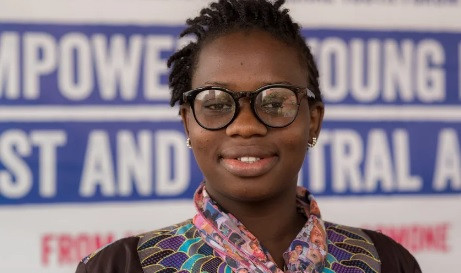
GCED Basic Search Form
Quick Search
You are here
News

Young people around the world are calling on governments to include them in education decision making.
A blog by Nicole Rodger, ECD Policy and Advocacy Lead and Yona Nestel, Inclusive Quality Education Policy and Advocacy Lead.
Education systems are not delivering the kind of education that children and young people want and need to be successful, engaged and empowered citizens and agents of change.
In the face of a global climate catastrophe, COVID-19, exacerbating humanitarian crises and a roll back on rights, their rallying cry is that education must be accessible for all and provide the knowledge, skills and competencies for advancing social, gender and climate justice.
On September 17, 18 and 19, governments, UN agencies, civil society, donors, philanthropists and young people will gather in New York City for the Transforming Education Summit (TES). This Summit, championed by the UN Secretary General, Antonio Guterres, aims to mobilise action, ambition, solidarity and solutions to transform education as part of the 2030 Agenda and beyond.
At TES, young people will share their vision and solutions for transforming education. Plan International will stand in solidarity with them and ensure that their perspectives and priorities are central to the Summit’s outcome.
Young people have a vision for education
When it comes to transforming education, young people have a clear agenda. Youth and feminist leadership is critical. The voices of those who are most affected must be heard. The potential of education to advance gender equality and dismantle systems of oppression and discrimination must be realised.
In practice, this means more support for holistic learning that goes beyond literacy and numeracy to include socio-emotional learning, climate change education, comprehensive sexuality education, civic education and peacebuilding.
It also means investing in gender-transformative education that goes beyond acknowledging and responding to gender disparities within the education system and the learning experience of the student. Gender transformative education must harness the full potential of education to transform attitudes and practices within and beyond the education system to contribute to a broader environment of gender justice for young people, in all their diversity.
Engaging young people in the development of inclusive education systems in a rapidly changing world fosters vital intergenerational partnerships that create opportunities for more responsive and transformational investments. When young people, particularly girls and young women, are empowered to actively participate, they will become critical actors in shaping a gender transformative education system.
Some progress is already being made. In Sierra Leone, in collaboration with the Ministry of Basic and Senior Secondary Education, Plan International Sierra Leone is supporting young people on a Youth Advisory Group (YAG). The YAG helps to ensure that children and youth are involved in decision making about all aspects of the education system as key stakeholders.
The world is facing a global education crisis
The COVID-19 pandemic resulted in widespread school closures. The World Bank estimated that at the height of COVID-19, education for 1.6 billion students was disrupted.
Even before the shock of COVID-19, the world was far off track on achieving international commitments to education. For example, in 2019, UNICEF reported that more than 175 million children – around half of pre-primary children globally, are not enrolled in pre-primary education. In terms of access to primary and secondary education, UNESCO said that no progress had been made for several years.
Fewer than one in two children reach a minimum level of proficiency in reading and mathematics by the end of primary school[RN3] . Access to, and quality of, education remains a challenge globally. Additionally, our recent research in the Middle East, East and Southern Africa region has shown that investments in education have stagnated or declined at a time where critical investments are needed. This trend is exacerbated with Overseas Development Aid (ODA) to education stagnating in 2020, with significant cuts to ODA being made by several major donors to education.
Marginalised children are most at risk
Lockdowns and school closures have hit girls’ education particularly hard and threaten to roll back years of progress. Being out of school doesn’t just have devastating consequences for girls’ life opportunities, it places them at risk of early and unintended pregnancy, child marriage, female genital mutilation and other forms of gender-based violence.
For adolescent girls in particular, the impacts of conflict and crisis are also devastating and compound the barriers they already face in accessing education, exacerbating pre-existing gender discrimination and harmful practices. The current hunger crisis also has severe education impacts, recognising that hungry children cannot learn, and girls are even more likely to drop out of school.
Young people are clear that Transforming Education requires a power shift and investments in their meaningful and inclusive participation in decision making and accountability processes. Education must be radically inclusive and prioritise the knowledge, skills and competencies that matter the most to young people as they fight for a more sustainable, equal and just world.
URL: bit.ly/3DMjR0h
